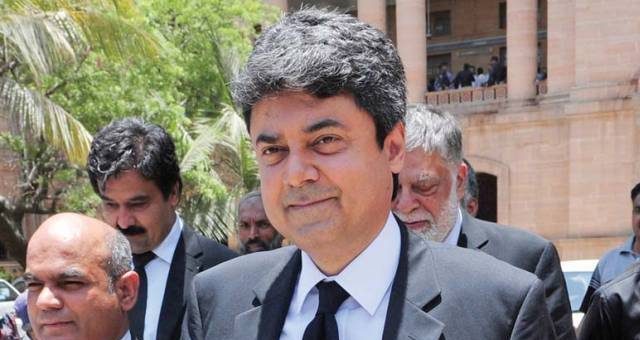ISTANBUL: Law Minister Farogh Naseem has termed Pakistan a test case for the fairness of the Financial Action Task Force (FATF) as, he added, it has done “everything” to get off the grey list.
In an exclusive interview with the Anadolu Agency on the sidelines of an event in Istanbul, Naseem said the Global money-laundering watchdog needs to apply laws to all countries without any prejudice.
“Out of I think 27 points, we have reached the 26th score,” he told Anadolu Agency.
“Even the FATF people are good people. I am not being critical of them. But as long as these (FATF) standards are universally applied, and not applied to only Pakistan, and as long as there is no international politics, then we welcome FATF. Let it be applied to everyone,” he said.
Questioning why Pakistan was still on the list, the minister said, “There should be no international politics, but FATF is being used to arm-twist. Then what can we say?”
Founded in 1989 on the initiative of the G7, France-based FATF, is an organization of the world’s seven largest advanced countries and monitors countries’ money flow and penalizes those whose financial systems are abused for money laundering and terrorism activities.
It had placed Pakistan on its “grey list” of countries with inadequate controls over terrorism financing in 2018.
However, FATF has acknowledged that Pakistan has made “progress.”
“I think we have met all objectives. At the (FATF) October session, Pakistan is going to give a very good roundup of whatever it has done,” Naseem said.
“I am very hopeful,” he said when asked whether Pakistan will exit the list. He said the Pakistani case was “actually a test of FATF’s fairness.”
“And, I would like to believe it’s a fair system. These international standards should be applied everywhere to every country.”
Naseem said Pakistan was “grateful to Turkish brothers” for their support at the FATF besides China.
‘Pakistan is a responsible state’
When asked about the review of a case about Indian spy Kulbhushan Jadhav, who is in Pakistani custody, Naseem said, Pakistan was a “responsible state.”
“Pakistan is a responsible state. Pakistan is a party to the Vienna Convention. So if it is a party to the Vienna Convention, it means that the International Court of Justice [ICJ] would have jurisdiction concerning any issues of consular access,” the minister added.
Jadhav was arrested by the Pakistani military in early 2016 from Balochistan, and was sentenced to death a year later for alleged “subversive activities against Pakistan.”
India later took the case to the ICJ. Islamabad claims Jadhav is a serving Indian naval commander.
“With regard to Jadhav, India lost the main case. Because the main prayer (submission) made by India (before the ICJ) was that he should be released…that he should be acquitted and released,” he said.
“(But) that prayer was dismissed by the ICJ. It is only this tiny part of the case that went against Pakistan, and that is with regard to consular access. And, we have given him consular access not once, but many times. And, we have not only done that; we have complied with the ICJ’s judgments by legislating an effective review and reconsideration law,” Naseem said.
“That effective review and reconsideration law gives Jadhav the right to file a case in the Pakistani high courts, and the Pakistani high courts are now possessed with such a law and the case. They are in the process of deciding, in terms of the directions which had been given by the ICJ, which is that there should be a review and reconsideration mechanism and that has been done,” he added.
